13 Best Companion Plants for a Thriving Fruit Garden
A successful fruit garden goes beyond just planting trees; it’s about choosing the right companions to promote growth and protect against pests. Companion plants can naturally deter harmful insects, enrich the soil, and encourage pollinators, all of which help your fruit trees flourish. By pairing the right plants with your fruit trees, you create a balanced, sustainable environment that reduces the need for chemical interventions. Explore the best companion plants that will help your fruit garden thrive naturally and efficiently.
This post may contain affiliate links, which helps keep this content free. Please read our disclosure for more info.
Garlic
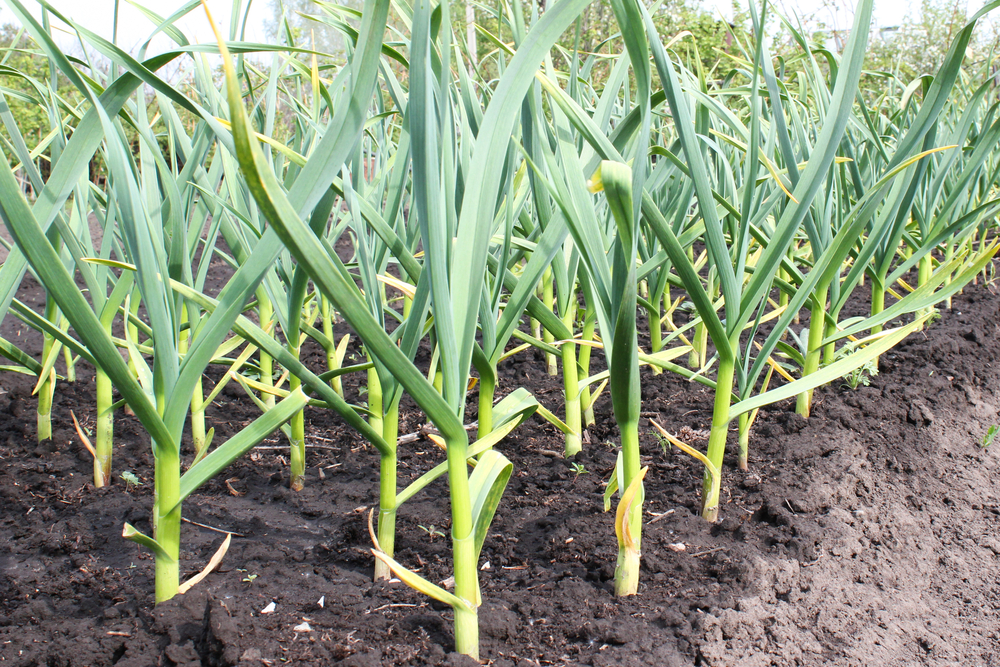
Garlic is a fantastic companion plant for fruit trees due to its ability to repel a wide range of pests, including the codling moth. The strong smell of garlic confuses insects and masks the scent of the fruit, making it harder for pests to locate their host. When planted near fruit trees, garlic acts as a natural pest deterrent without the need for chemicals, making it a safe and eco-friendly option. Additionally, garlic’s sulfur compounds have antifungal properties that can help prevent diseases, further promoting the health of your fruit garden.
Beyond pest control, garlic can also benefit fruit trees by improving soil health. Garlic has been known to break up compacted soil, which enhances root growth for nearby plants. The plant’s ability to naturally repel pests like aphids, spider mites, and other common garden pests makes it a must-have for any fruit garden aiming for a thriving, organic environment. Plant garlic around the base of fruit trees or in garden beds to form an effective barrier against harmful pests.
Chives
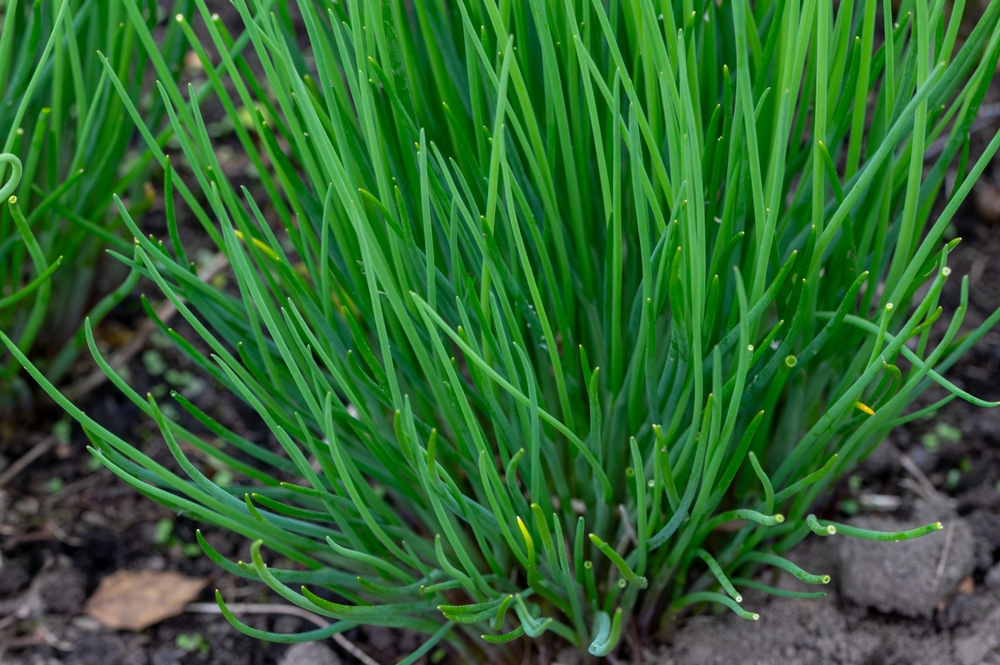
Chives are another excellent companion plant for fruit gardens, particularly for deterring pests like the codling moth. Much like garlic, chives belong to the allium family, and their strong scent repels not only codling moths but also aphids and other fruit tree pests. Chives’ ability to confuse insects and discourage them from settling on fruit trees makes them an effective natural solution for pest management. Additionally, chives are known to attract beneficial pollinators, such as bees, which are vital for fruit tree pollination and overall garden health.
Chives also provide some benefits for soil health. Their shallow roots help loosen the soil, improving aeration and allowing water and nutrients to reach deeper into the soil. Planting chives alongside fruit trees or in garden beds helps create a balanced environment for growth. They can also be harvested and used in the kitchen, adding value to your garden while providing natural pest protection.
Nasturtiums
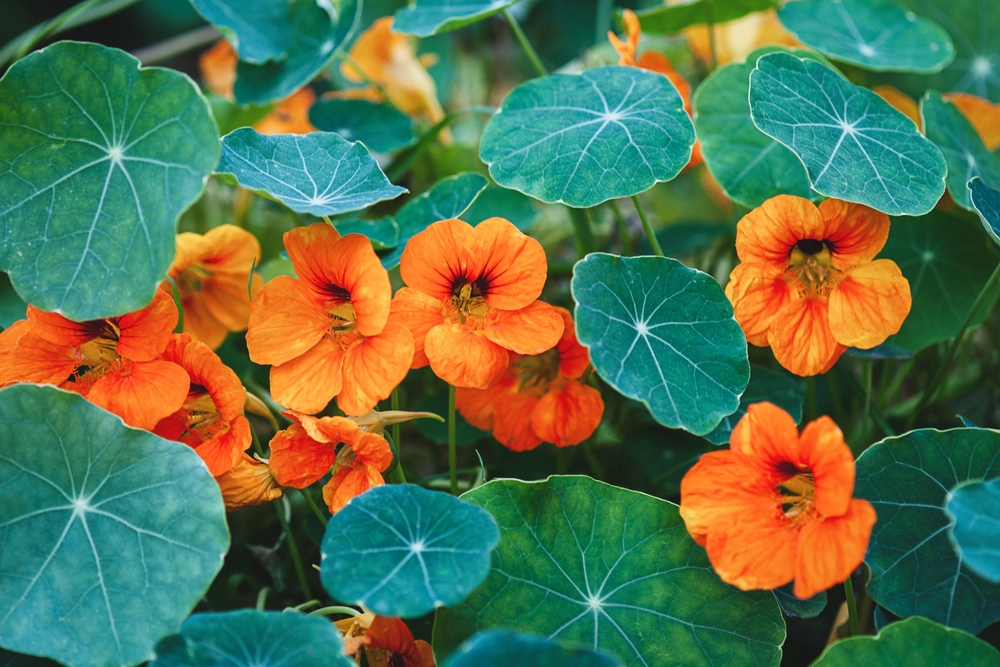
Nasturtiums are a vibrant and effective companion plant for deterring pests in a fruit garden. These plants are excellent trap crops, drawing aphids and other pests away from fruit trees. Nasturtiums’ strong smell can confuse pests, including codling moths, and prevent them from targeting your fruit. These flowers are not just ornamental; they play an active role in protecting your plants. In addition to attracting pests away from fruit trees, nasturtiums also act as a trap for caterpillars and other insects that might otherwise damage your crops.
Nasturtiums are also beneficial because they attract predatory insects, such as ladybugs and predatory wasps, which help keep the pest population in check. Their bright, attractive flowers add color to your garden while providing pest control benefits. Plant nasturtiums around the perimeter of your fruit trees or intersperse them throughout your garden for a natural and aesthetically pleasing pest deterrent.
Marigolds
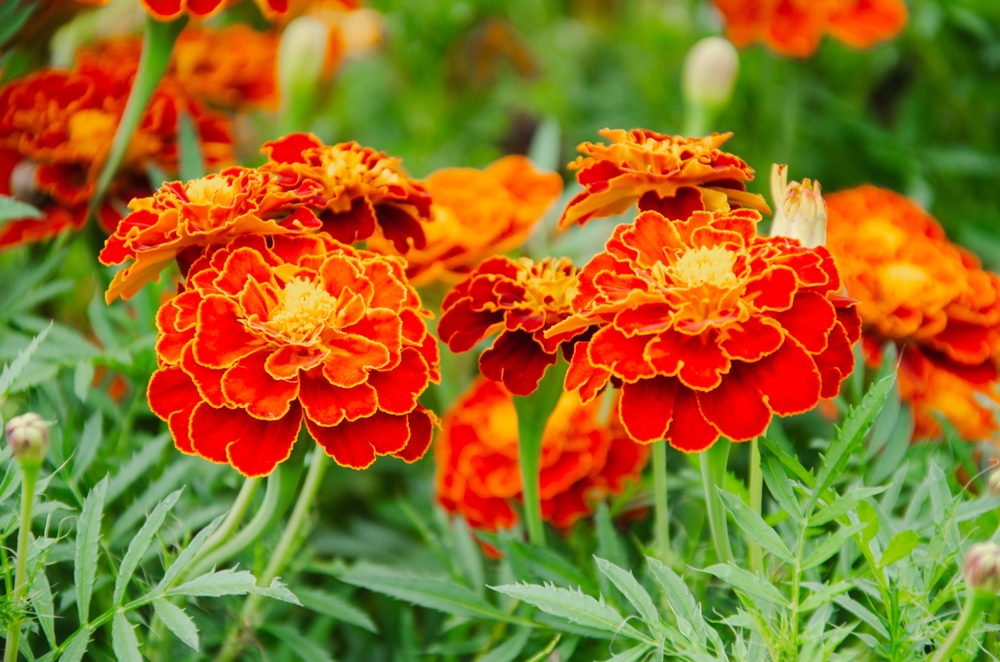
Marigolds are one of the most popular companion plants, thanks to their ability to repel a variety of harmful pests. Their strong, pungent scent is particularly effective at deterring codling moths, aphids, and beetles that might otherwise harm your fruit trees. The scent also confuses insects, making it harder for them to locate fruit trees and their blossoms. Marigolds can be planted throughout your garden or directly around the base of fruit trees to form a protective barrier against common pests.
In addition to repelling pests, marigolds attract beneficial insects such as ladybugs and hoverflies, which prey on aphids and other garden pests. These flowers are a natural, chemical-free way to keep pests under control while promoting a healthy ecosystem. With their bright colors, marigolds also add a burst of beauty to your garden, making them a double-duty plant that protects and enhances your fruit garden.
Lavender
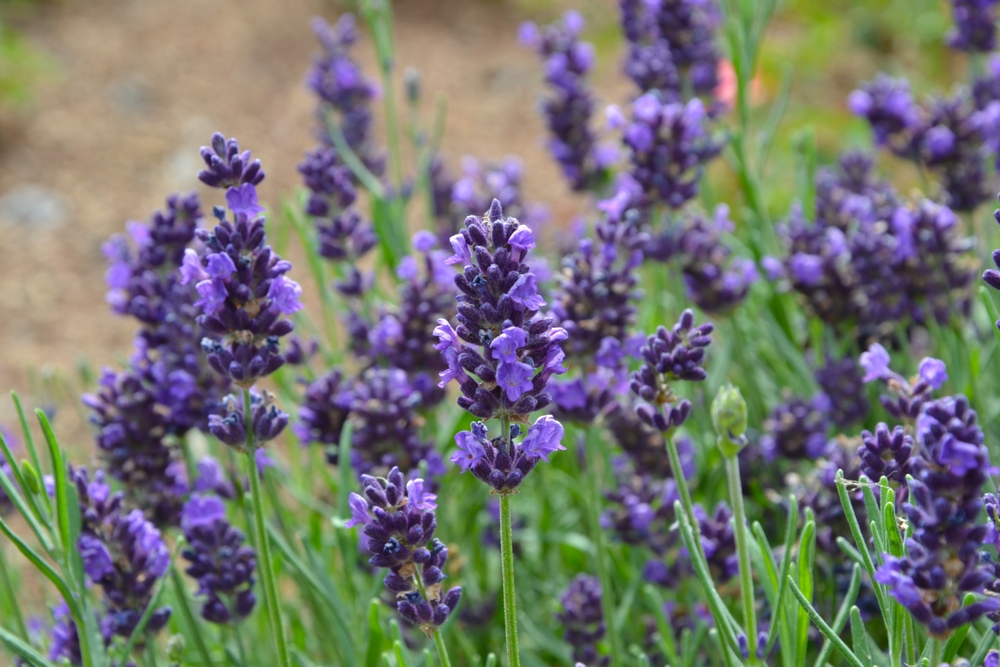
Lavender is a fragrant herb that works wonders as a companion plant in fruit gardens. Its strong scent deters pests like the codling moth, aphids, and even mosquitoes. Lavender’s natural oils confuse and repel insects, preventing them from settling on your fruit trees. In addition to keeping pests at bay, lavender attracts beneficial insects such as bees, which are essential for pollination. This helps ensure that your fruit trees have a better chance of producing abundant fruit.
Lavender also offers several other benefits for your garden. It thrives in well-drained soil and can help improve the soil structure around fruit trees. Lavender’s presence can also enhance the aesthetic of your garden with its calming color and fragrance. Whether planted in rows along the edges of your fruit garden or as a border around fruit trees, lavender not only serves as a natural pest repellent but also as a beautiful and fragrant addition to your garden design.
Basil
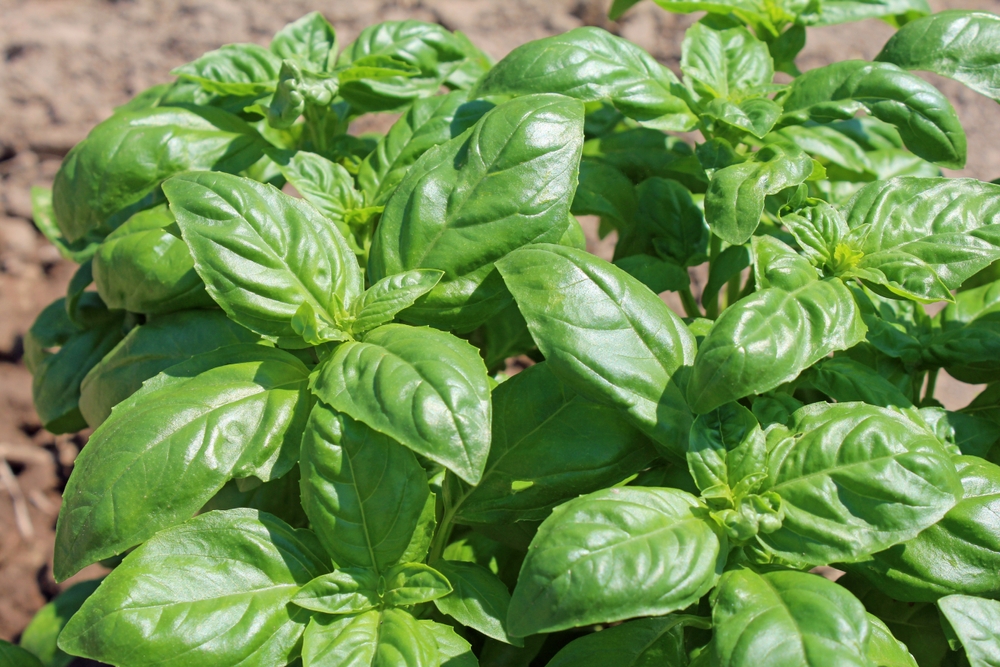
Basil is a wonderful herb to plant alongside fruit trees due to its ability to repel a variety of pests, including flies, mosquitoes, and aphids. The strong aroma of basil helps mask the scent of the fruit, making it less attractive to pests like the codling moth. In addition to protecting your fruit trees, basil also attracts beneficial insects such as bees, which help with pollination. Planting basil around fruit trees not only promotes healthy growth but also provides you with fresh herbs for cooking throughout the season.
Basil thrives in warm, sunny conditions and works well in companion planting with many fruit varieties. The plant’s ability to deter pests naturally makes it an eco-friendly alternative to chemical pest control. Growing basil near fruit trees can also improve soil health, as it encourages a healthy microbial balance in the soil. The combination of pest-repelling properties and culinary use makes basil a practical and beneficial addition to any fruit garden.
Comfrey
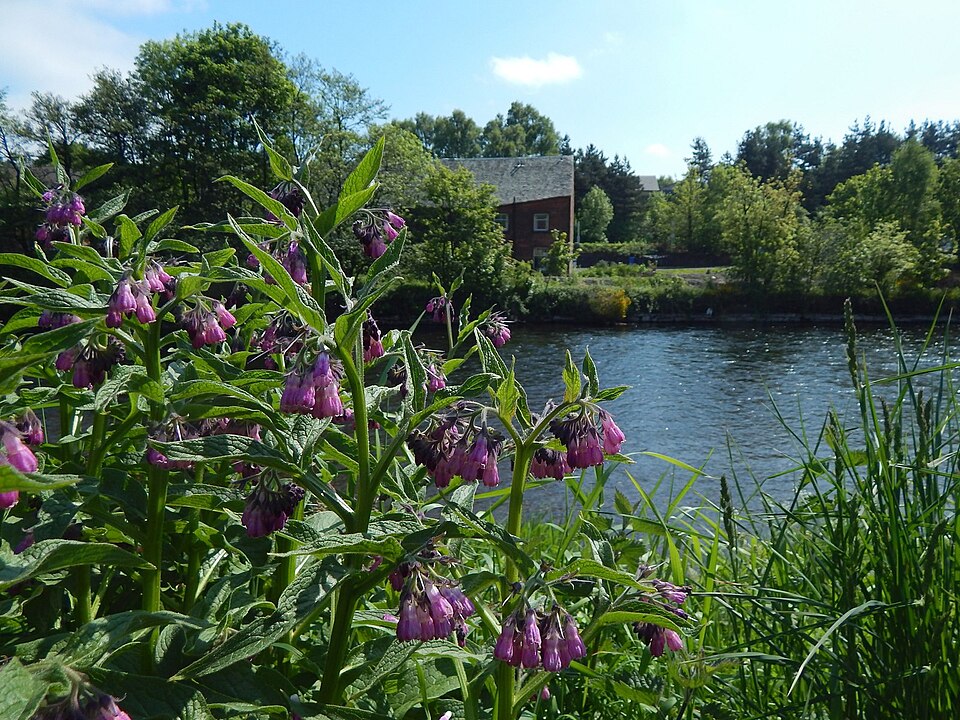
Comfrey is a nutrient-rich perennial plant that is beneficial for fruit gardens. It serves multiple purposes, one of which is attracting pollinators like bees and butterflies, which are crucial for fruit tree fertilization. Comfrey also works as a dynamic accumulator, meaning it draws nutrients like potassium, calcium, and magnesium from the soil and stores them in its leaves. These nutrients can then be returned to the soil when the plant’s leaves are used as mulch or compost, enriching the surrounding area.
Additionally, comfrey can act as a companion plant by providing a natural barrier against pests. The plant’s large, broad leaves can help prevent weed growth around fruit trees, keeping the garden area tidy. Comfrey’s deep roots break up compacted soil, improving drainage and allowing for better root growth for your fruit trees. Planting comfrey near your fruit trees can enhance soil fertility, support pollination, and help maintain a healthy garden ecosystem.
Dandelions
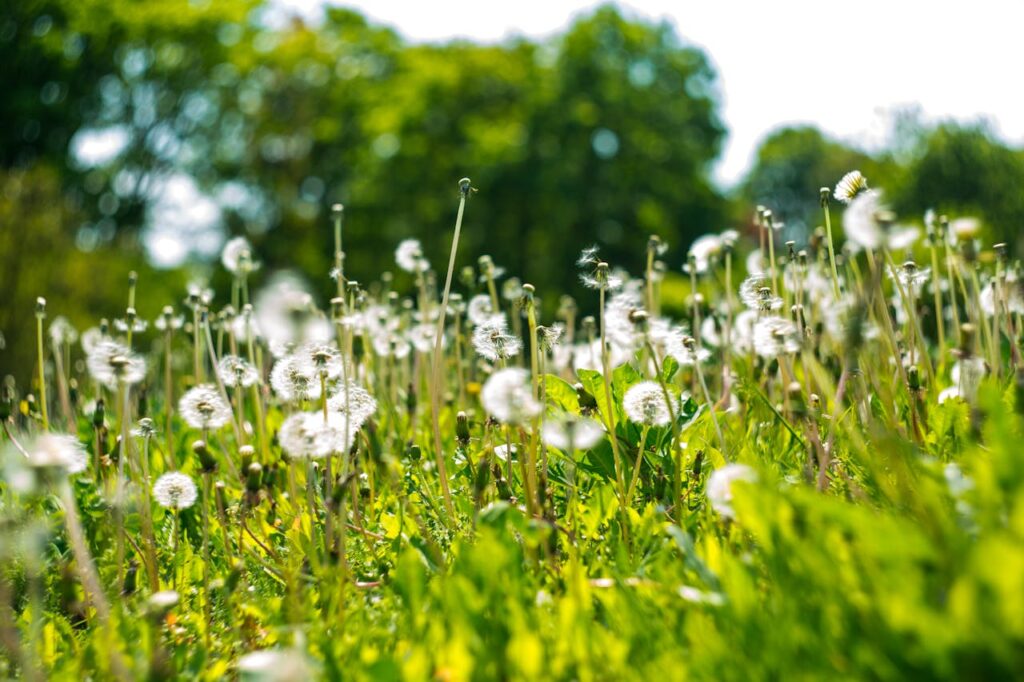
Though often considered a weed, dandelions can be an excellent companion plant in fruit gardens. They help attract pollinators, including bees, which are essential for fruit tree fertilization. The bright yellow flowers of dandelions serve as a beacon to these helpful insects. Additionally, dandelions have deep taproots that help break up compacted soil, which benefits fruit tree root systems by improving water infiltration and soil aeration.
Dandelions also have medicinal and culinary uses, providing an extra layer of utility in the garden. While they are not directly effective in repelling codling moths, their role in attracting pollinators and improving soil quality makes them a valuable plant in a thriving fruit garden. They can be planted near fruit trees or in between rows of crops to create a more balanced garden ecosystem.
Tansy
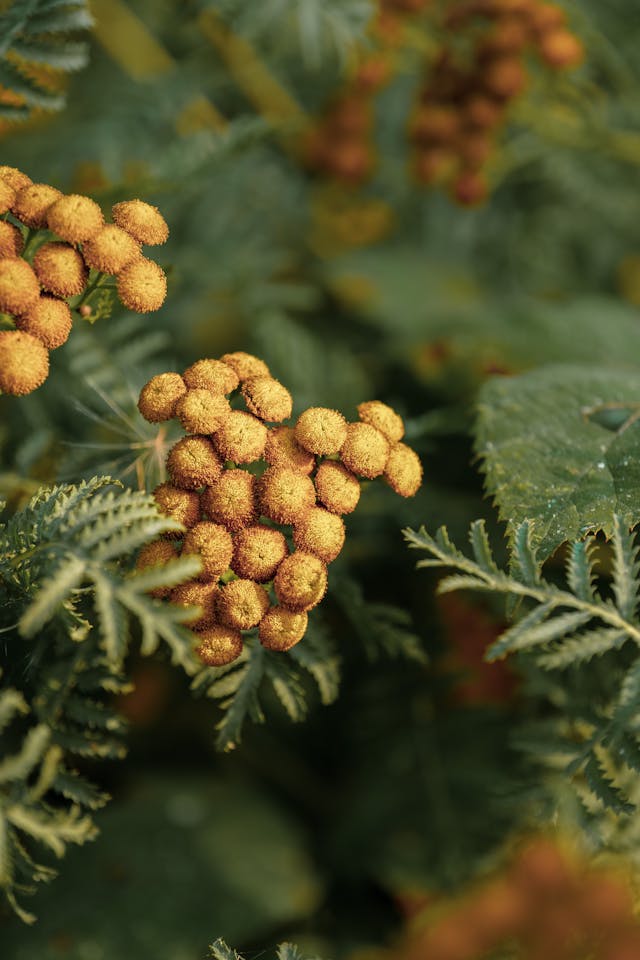
Tansy is a powerful companion plant known for its pest-repelling properties. Its strong scent can deter a variety of pests, including codling moths, aphids, and ants. Tansy also attracts beneficial insects like ladybugs and parasitic wasps, which help to control pest populations naturally. These insects prey on aphids, whiteflies, and other pests that may harm your fruit trees.
In addition to its pest control benefits, tansy’s dense foliage can act as a natural mulch, helping to retain moisture in the soil and reduce weed growth. However, tansy should be planted with caution, as it can spread quickly. It is best planted at the edges of your garden or in contained areas to prevent it from overtaking other plants. Overall, tansy is a valuable addition for a thriving fruit garden, offering natural pest control while improving soil health.
Sweet Alyssum
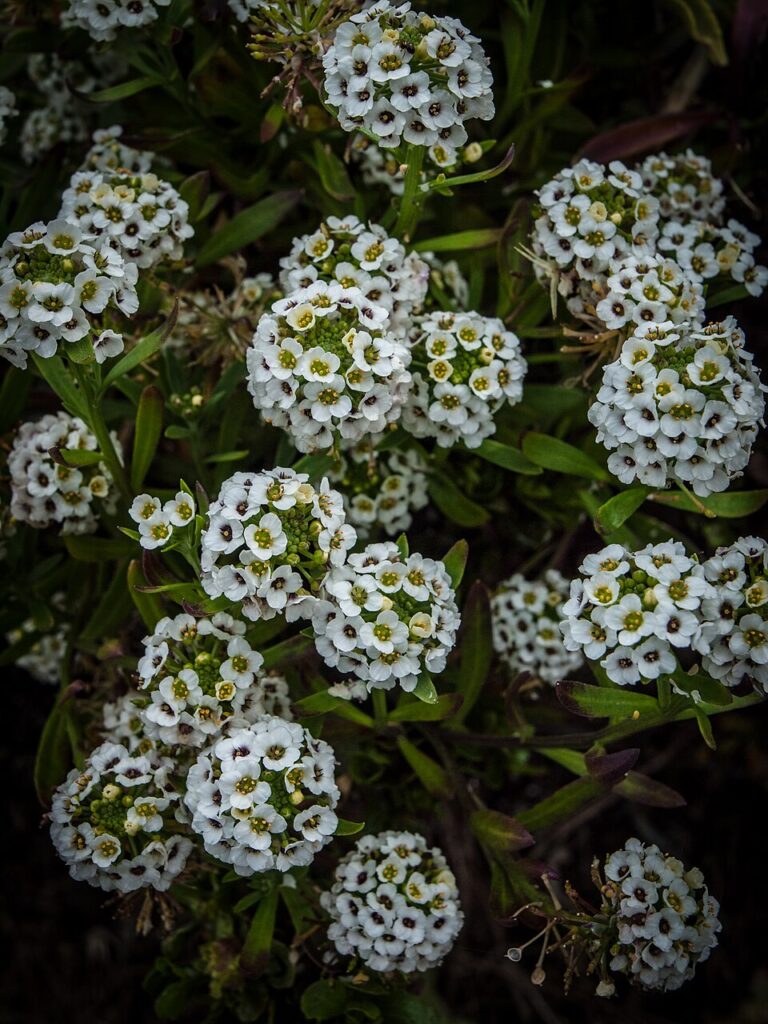
Sweet alyssum is a charming, fragrant plant that can help improve the health of your fruit garden by attracting beneficial insects like ladybugs, hoverflies, and lacewings. These insects are natural predators of pests such as aphids, which can damage fruit trees and reduce crop yield. Sweet alyssum’s delicate flowers provide a reliable food source for these helpful creatures. When planted near fruit trees, sweet alyssum acts as a pest control mechanism without the need for harsh chemicals.
This low-growing plant is also beneficial for improving soil health. Its ability to grow in both sunny and partially shaded areas makes it a versatile companion for many types of fruit trees. The dense mat of flowers helps to suppress weeds, allowing your fruit trees to grow more freely. Sweet alyssum’s ability to attract helpful insects and its low-maintenance nature make it a must-have companion plant for fruit gardens.
Mint
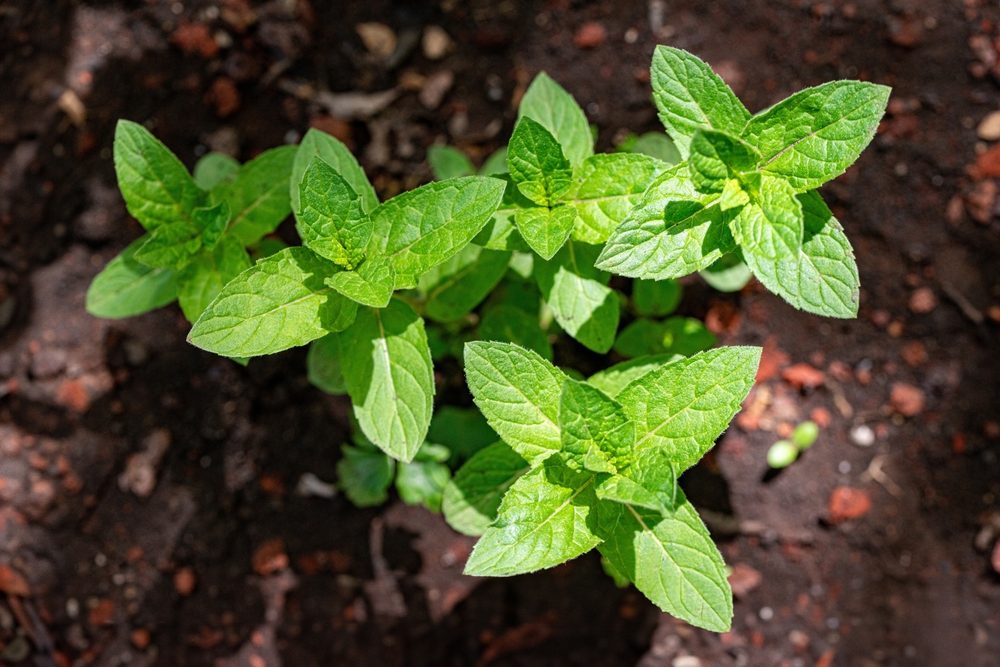
Mint is a powerful aromatic herb that naturally repels pests like ants, aphids, and the codling moth. Its strong scent confuses insects and deters them from targeting fruit trees. Mint can be planted around the base of fruit trees or in garden beds to help create a protective barrier. Mint is also an excellent ground cover that prevents weeds from growing, which is beneficial for your fruit trees as they have less competition for nutrients.
However, mint can be invasive, so it’s best to grow it in containers or raised beds to control its spread. In addition to its pest-repelling benefits, mint can be harvested for use in cooking and tea, making it a versatile addition to your garden. Mint thrives in partially shaded areas and needs regular watering to keep its growth in check. With its dual-purpose use, mint is an effective and practical companion plant for your fruit garden.
Yarrow
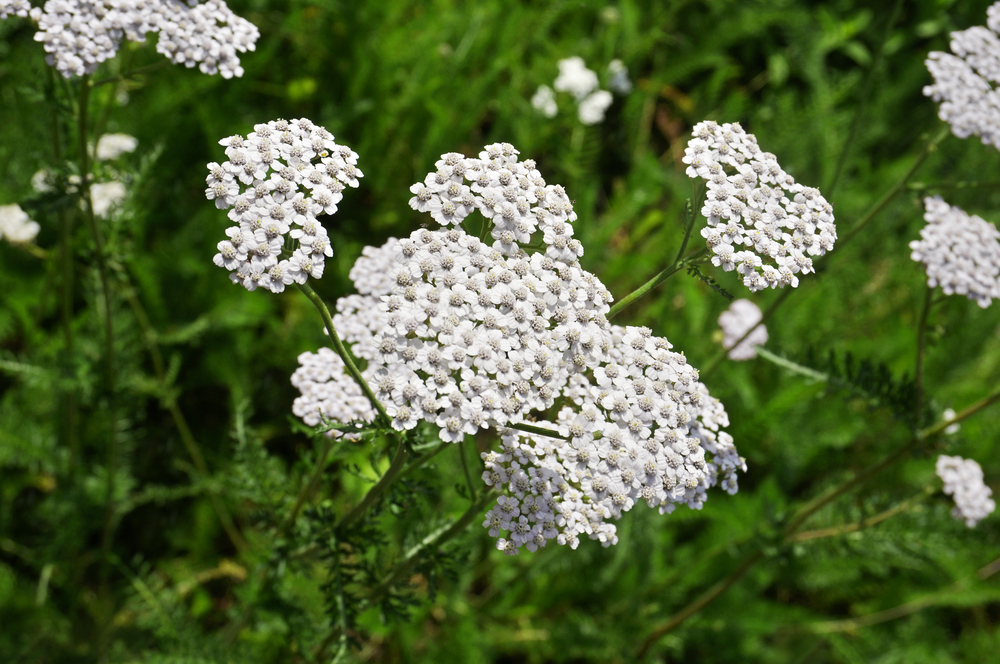
Yarrow is a perennial herb that works well as a companion plant for fruit trees. It attracts beneficial insects such as ladybugs, predatory beetles, and parasitic wasps, which help keep harmful pest populations under control. Yarrow’s strong fragrance also repels pests like aphids and codling moths, making it an effective natural deterrent. This herb is particularly useful for deterring pests without harming the ecosystem, as it only targets harmful insects while supporting pollinators.
Yarrow also offers benefits to the soil, as it has deep roots that help with soil aeration. Its drought-resistant nature makes it suitable for areas where water conservation is a concern. By planting yarrow near fruit trees, you can enjoy both its pest-repelling properties and its aesthetic value, as the plant produces clusters of small, colorful flowers. Yarrow’s versatility and pest control capabilities make it a valuable addition to any fruit garden.
Fennel
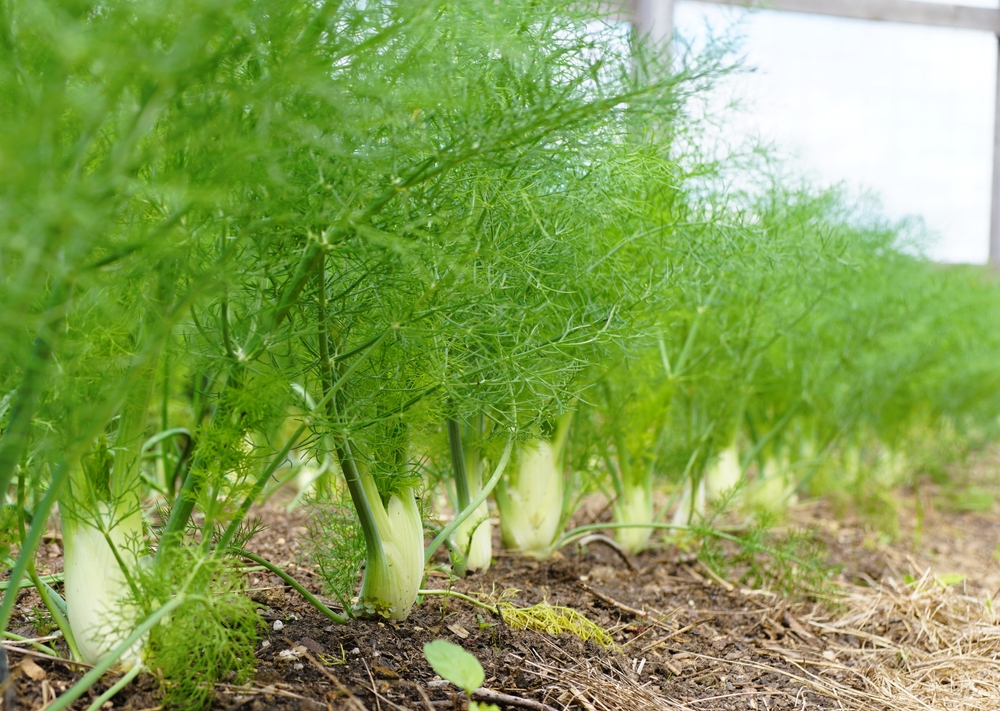
Fennel is a robust herb that provides numerous benefits to fruit gardens. It acts as a natural pest repellent by deterring codling moths, aphids, and other harmful insects. Fennel’s strong scent makes it difficult for pests to locate fruit trees, and its pollen attracts beneficial insects like hoverflies and ladybugs, which feed on aphids. However, fennel can be a bit invasive, so it is best planted in containers or with caution in garden beds.
Aside from its pest control properties, fennel also improves soil health by adding organic matter. Its tall, feathery fronds provide shade to lower-growing plants, which helps to prevent soil erosion. The plant can also be harvested for its flavorful seeds, making it a multi-purpose addition to your garden. For optimal results, plant fennel away from other herbs to avoid competition and let it work its magic as a pest-repelling companion for fruit trees.
This article originally appeared on Avocadu.
